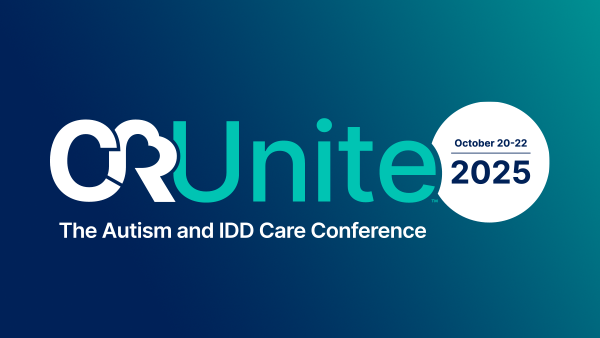Preparing for professional examinations in behavior analysis can be overwhelming. At CentralReach, we were curious about our internal staff members’ experiences. With so many different strategies, we thought who would be better at vetting various recommendations than those who have already passed the exam. Most of the people we surveyed are certified by the Behavior Analyst Certification Board® as BCBA®s, but we also talked with RBT®s and certified speech therapists. It turns out, many of the strategies they recommended align with evidence-based best practices for standardized exam preparation.
Distributed Practice
One useful technique is "distributed practice" -- spacing out study sessions over time, as it leads to more effective long-term learning and retention of material. Heather Morton, BCBA, described her approach as slow and steady, rather than “cramming.” According to Palmer and Thompson (2011), distributed practice - spacing out study sessions over time - is an effective technique for long-term learning and retention of material. This approach was used more frequently by participants who passed the BCBA exam on their first try compared to those who did not.

Shaping Knowledge
Another effective technique for study preparations involves breaking down material into smaller components. Studying small subsets of the task list using behavior analytic principles and active retrieval practice, such as flashcards or self-quizzing, can be effective. When looking at the task list, it’s clear that there is a wealth of knowledge expected of aspiring behavior analysts. Shape your understanding of the content with small areas of focus.
SAFMEDS
Both Glynna Pomerantz, SLP, and Liz Krulder Kumar, BCBA, reported that creating their own flashcards and writing out incorrect answers until they can be recalled without assistance was helpful. To take this even further, research indicates that taking a SAFMEDS (Say All Fast Minute Each Day Shuffle), approach to flashcard usage is particularly effective for behavior-analytic learning. SAFMEDS involves rehearsing the information on flashcards quickly, accurately, and repeatedly over time, with the goal of increasing fluency and automaticity of the targeted behavior or skill. This method has been demonstrated in various studies to be effective in promoting rapid and efficient learning and maintaining acquired skills over time and may further enhance the effectiveness of this study technique for BACB exam preparation (Slocum et al., 2014).

Peer Support
As highlighted by CentralReach Behavior Analysts Kelly King, Diana Mason, and Jacquie Rymer, studying with peers can result in a more well-rounded understanding of the material, as well as make the study experience itself more enjoyable. Others, such as Knowledge Builder’s Study Group leader Cas Breaux, find it very reinforcing to make lists of study topics and mark them off as fluency is attained. Identifying those study topics from information gleaned by taking mock exams helps to ensure the study sessions are useful. Dixon et al. (2016) provided guidelines for coaching examinees through the acquisition of skills needed to pass the BACB® exam, including identifying key topics and using evidence-based practice to teach content. When self-managing your study, these suggestions can also help you focus your time and effort.
Develop Test-Taking Strategies
Finally, both Cas Breaux and Shannon Hill, behavior analysts who design pre- and post-certification continuing education courses, emphasize the importance of developing test-taking skills. An expert test taker can often answer questions correctly based on how the questions and response choices are worded. While we would not want these exams to be passable with test-taking skills alone, (and certainly the certification associations designing these tests guard against that being a possibility), learning to break down the wording can help improve your chances of making an informed guess vs a random guess. Informed guesses are more likely to be correct than random guesses (Ercikan & Roth, 2006; Butler & Roediger, 2008).
Building Knowledge with CentralReach
For more ideas to help you pass your upcoming BCBA® exam, check out 10 Study Strategies to Prepare you for the BCBA Exam. For a comprehensive solution for your team’s study preparations, check out CentralReach’s ABA Knowledge Builder. Develop your staff’s task list knowledge with competency-based learning. With an individualized curriculum, over 3,000 mock questions, SAFMEDS, study sessions, and more, they’ll feel better equipped to take on the exam.
Overall, utilizing evidence-based techniques and finding those procedures that align with your personal reinforcement history, may increase your chances of passing the exam and achieving certification as a behavior analyst. Best of luck with your studies!
Also check out our post on BCBA Test Prep with our Knowledge Builder.
CentralReach. (2021, September 1). Evidence-Based Strategies for Standardized Exam Preparation. CentralReach Blog. https://centralreach.com/blog/evidence-based-strategies-for-standardized-exam-preparation/
References:
Butler, A. C., & Roediger, H. L. (2008). Feedback enhances the positive effects and reduces the negative effects of multiple-choice testing. Memory & Cognition, 36(3), 604–616. https://doi.org/10.3758/MC.36.3.604
Dixon, M. R., Reed, D. D., Smith, B. M., Belisle, J., Jackson, J. W., & Kubina, R. M. (2016). Guidelines for coaching examinees through the acquisition of skills needed to pass the BCBA® Exam. Journal of Applied Behavior Analysis, 49(1), 221–236. https://doi.org/10.1002/jaba.285
Ercikan, K., & Roth, W. M. (2006). What good is guessing? Instructional Science, 34(2), 101–119. https://doi.org/10.1007/s11251-005-6844-y Palmer, D. C., & Thompson, D. M. (2011).




